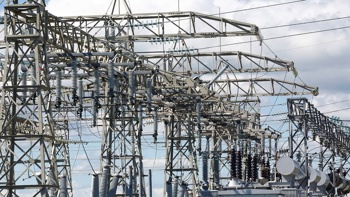
New Zealand’s economy slumped in the September quarter.
The economy shrank 0.3 per cent compared to the June quarter.
The data is weaker than economists’ consensus forecasts.
A sluggish manufacturing sector influenced the downturn, which happened despite some record-setting recent net migration.
“All goods-producing industries were down this quarter, led by a fall in manufacturing,” Stats NZ national accounts industry and production senior manager Ruvani Ratnayake said today.
The fall in manufacturing was driven by petroleum, chemical, plastic, and rubber manufacturing, and food and beverage manufacturing.
“The transport, postal, and warehousing industry also fell, and this was primarily due to a decline in freight logistics, with fewer goods being exported in the quarter,” Ratnayake said.
Despite the overall fall in GDP, 8 of the 11 service industries grew this quarter. The strongest rises were seen in healthcare and social assistance; and rental, hiring, and real estate services.
Market reacts
In the wholesale interest rate market, the two-year swap rate dropped to 4.90 per cent in reaction to the data, from 4.985 per cent just before the release.
The 10-year swap rate fell to 4.49 per cent from 4.51 per cent.
- ASB Economist predicts minor rise in GDP figures
- Low hopes for today's GDP figure - Westpac Economist
Rates had already been heading lower due to a more dovish-than-expected release from the US Federal Reserve, which pencilled in 75 basis points of possible rate cuts next year.
The NZ dollar, which had been sharply stronger just before the release, dropped to US61.74c from US62.01c.
Hopes for growth dashed
Economists had expected the latest Stats NZ data to show the economy still growing - just.
But they warned that for many people, conditions would feel recessionary, even if the economy grew.
Kiwibank was picking 0.2 per cent GDP growth for the quarter.
Chief economist Jarrod Kerr noted that, regardless of whether we technically land in recession or not, the next few months will be very subdued.
“For us, it’s a bit of a change in direction from our initial estimate of a 0.2 per cent contraction,” he says. “But let’s be clear. It has nothing to do with a stronger than expected economy, and everything to do with our record-breaking net migration.
“In the year alone we’ve imported a net 120,000 migrants, helping grow our population by 2.7 per cent in the year ending September 2023.”
New Zealand’s strong population growth included a net migration gain of 118,000 in the year to September.
“Our larger population is supporting higher output and higher demand. But take that away, and we would have very likely been embarking on the first quarter of our second recession of the year,” Kerr said.
ANZ’s Miles Workman struck a similar tone. ANZ had picked 0.3 per cent growth for the quarter - in line with the RBNZ’s latest forecast.
Workman said it was a very different story if we looked at per capita GDP.
“Growth in the population of 0.6 per cent (q/q) means our expectation for headline GDP growth of 0.3 per cent implies a per capita contraction is on the cards,” he said.
“Looking forward, while the economy may avoid another technical recession at the headline level, the per capita cut of these data probably won’t be so lucky.”
Subtract surging migration from the picture and the underlying state of the economy would be very soft indeed, Workman said.
Workman said migration was making it easier for firms to find workers.
But the RBNZ’s assessment was that net migration was a small net positive for inflation, suggesting the more migration-driven growth we get, the more pain the RBNZ might have to inflict at a per-capita level.
That “pain” could be through more hikes or just holding rates where they are for longer.
ASB economists were picking 0.2 per cent growth for the quarter but also note we are facing a “per capita recession”.
Take your Radio, Podcasts and Music with you









